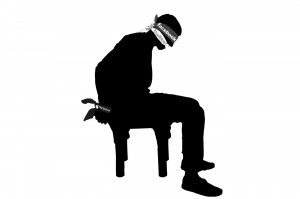By ITXASO GARAY and ADAM LUNDQUIST
CASA GRANDE HIGH SCHOOL
As the social networking craze increases across all ages, genders and races, the adverse effects of these sites also are increasing.
Adolescents are becoming victims of the Internet and are responding with drastic measures. This generation’s creativity and capacity for higher thinking are being damaged by overwhelming amounts of information accessible on social networking sites. Although such sites encourage connections between users, relationships outside of the realm of the virtual world are no longer as substantial or meaningful. Despite the harmful results of social networking, it has greatly revolutionized the world.
“Social networking has practical uses like being able to share knowledge, and it can connect past interests and friends again,” said Casa Grande High School junior Gavin Velez, who has a Facebook account. “But relationships become more distant over social networking sites. Online the emotions are more flat and less real and can be more easily misunderstood.”
Face-to-face contact is more powerful and enables more understanding than chatting online. Ideas and feelings can be lost or taken the wrong way because the connection online is not real.
Freshman Nicholas Rauch does not have any kind of social networking account and agrees with Velez.
“Social networking stops face-to-face communication; conversation is what allows us to think higher,” Raush said.
“The web damages our potential for long-lasting relationships,” Velez said. “It is easier to know things about people online, but it is harder to really understand. Face-to-face communication is important for relationships with the people that really count and will be there for you.”
Because of the lack of real connection online, social networking sites promote shallowness. Reading about peoples’ lives can be emotionally draining, and, for most, becoming shallow is easier than having to care for or learn more about someone.
“Social networking is really just making us more antisocial,” Velez said.
Adam Harwood, a freshman, chooses not to have a Facebook account because he doesn’t believe he needs one.
“The biggest problem with social networking is that people put things up, inappropriate pictures or posts, and they don’t realize that one day it could all come back to haunt them. People put everything out there and then just press delete when they want them to go away. They think whatever they did will just be gone, but it won’t be. The mindlessness in social networking is a big problem.”
Another critique many have on social networking and the Internet is that it is affecting this generation’s critical thinking ability: American writer Nicholas Carr reported in an interview with the Chronicle of Higher Education, “We can get stuck just constantly uncovering new relevant information and never stopping and actually reading and thinking deeply about any one piece of information.”
“We still have the capacity for wisdom, but social networking is a major hindrance. Our generation has no time to develop wisdom because we are bouncing around so much between different sites,” Velez said. “We don’t take in things and appreciate their beauty. Social networking is just a distraction from this.”
“People pay more attention to their Facebooks than they do to their work. I don’t have a Facebook because of this,” Harwood said.
One of the major problems with social networking is the ease at which harassment and bullying can take place.
“It is simpler for someone to type out something mean to someone’s mechanical, online face than it is to face the person’s pain,” Velez said. “It is easier to be cruel when you aren’t there in the moment with the other person to feel the guilt and remorse.”
“Cyber bullying is worse than bullying face-to-face. Bullying has increased because it is easier to do it online and to gain access to someone,” Rauch said. “When someone posts on your wall you can’t get rid of it. The bullies have low self-esteem.”
As more and more people begin to see the negative effects of social networking, less people will be attracted to such web sites. Velez believes we are at the peak of social networking’s popularity.
Although Velez believes social networking in and of itself is not damaging, he said it is easy to fall into the trap social networking sets up for us.

